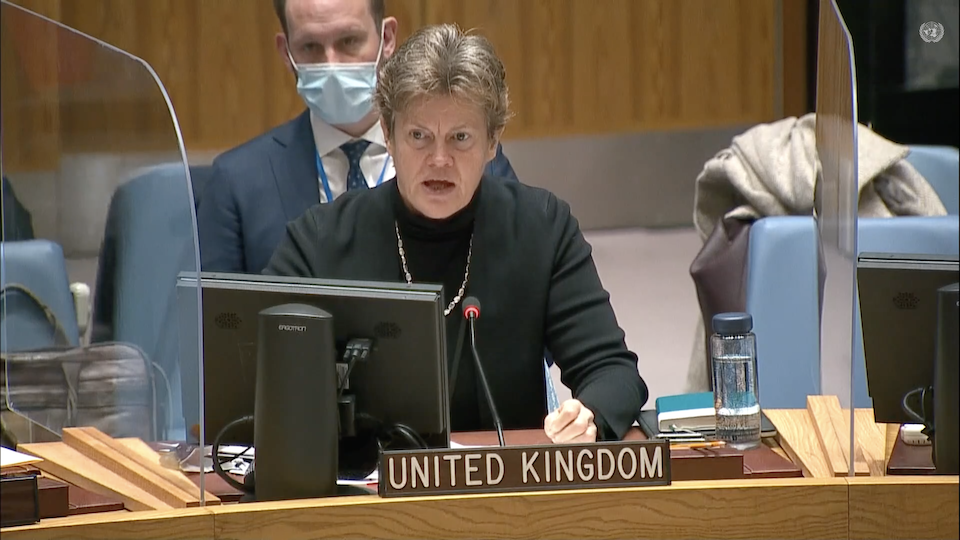A system-wide approach to conflict prevention and sustaining peace
Statement by Ambassador Barbara Woodward at the Security Council open debate on the maintenance of international peace and security.

Thank you, Mr President. And thank you to the Secretary-General, the President of the General Assembly, to Ambassador Kelapile from ECOSOC and to Judge Donaghue for your briefings.
In 2016, this Council and the General Assembly adopted a pair of groundbreaking resolutions on peacebuilding and sustaining peace. What these resolutions did was acknowledge explicitly and for the first time that conflict prevention was the responsibility of the entire UN system.
Building on our collective recognition that development, peace and security, and human rights are interlinked and mutually reinforcing, these resolutions envisioned a more integrated and coherent UN approach to preventing conflict.
As we’ve heard today, making this a reality is still a work in progress – as the 2020 UN Peacebuilding Architecture Review also reminded us. And we warmly welcome the Secretary-General’s prioritisation of peace in Our Common Agenda.
Mr President, I have three points:
Firstly, a system-wide approach to sustaining peace is critical. By the time an issue reaches the Security Council, it may be too late for many on the frontline of the receiving end of conflict. Peace needs to be a core consideration of the wider UN architecture. The Peacebuilding Commission is obviously key but we can do more to realise the PBC’s full potential as well as we’ve heard today of the roles of other UN bodies.
In this, the Human Rights architecture is particularly important. And those who hide behind arguments about mandates and competencies to maintain that human rights have no bearing on peace and security would do well to revisit the UN Charter. Moreover, as we see, human rights violations are often an early indicator of conflict, and human rights diplomacy is a key part of preventive diplomacy.
Second, peace needs embedding more firmly into the work of UN bodies concerned with development. Development may be the best form of conflict prevention. But, as we have said before, development done poorly is not the “master key to unlocking all problems.”
For development to be sustainable, it needs simultaneously to address issues that we know often drive conflict, including economic, social and political exclusion.
Thirdly, Mr President, as your concept note states, an international order based on the rule of law is indispensable for a more peaceful, prosperous and just world. That includes this Council holding governments to account when they disregard international treaties, especially when this involves serious violations of human rights and international humanitarian law.
For the United Kingdom, this also means promoting open societies, good governance and the rule of law at the national level. Combatting corruption and ensuring that people have access to justice and security can be important steps in preventing conflict.
To conclude, Mr President, overcoming the silos of the UN system is critical for UN conflict prevention. The United Kingdom is committed to realising the promise of the 2016 “twin resolutions”, and we are grateful to you Mr President for this timely debate and I thank you.